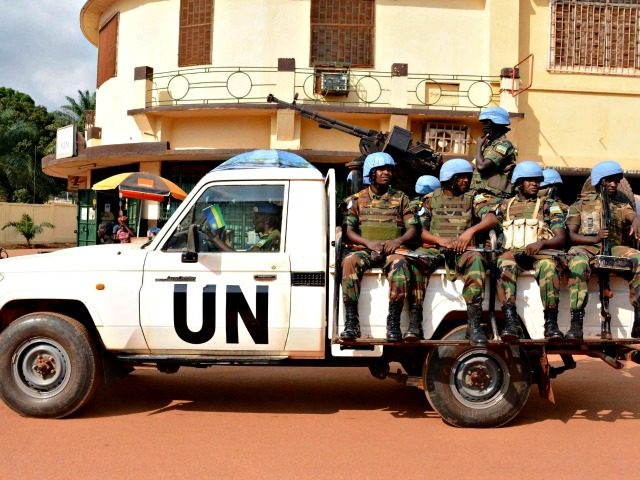Breitbart
Kristin
Experts say a top priority for the next United States ambassador to the United Nations in 2019 should be to reduce waste of taxpayer funds at the UN.
They say the UN has ballooned in size and budget beyond what is necessary and lacks proper oversight, resulting in duplicate staff, programs, and waste.
With the U.S. paying for the lion’s share of the UN’s budget, they say the U.S. should make sure that necessary reforms are undertaken, and that the money is spent more wisely.
The U.S. contributes more to the UN than the next three nations combined, according to a September 2018 Quartz article.
In 2016, the U.S. paid more than $10 billion for the UN — about one-fifth percent of the UN’s total budget, according to the Council on Foreign Relations (CFR). Of the $10 billion U.S. contribution, about $4 billion went to mandatory “assessed contributions,” and $6 billion went to “voluntary contributions,” according to CFR.
Assessed contributions go towards the UN secretariat’s day-to-day operating costs, or its “regular budget,” as well as towards peacekeeping operations and some UN specialized agencies such as the International Atomic Energy Agency (IAEA) and the World Trade Organization (WTO).
The U.S. pays more of the UN’s regular budget than any other of the body’s 193 members, at 22 percent. When the UN was first established in 1945 as a body deliberating peace and security matters, the regular budget was $19.39 million in nominal dollars, according to a Heritage Foundation report. In 2016, it was $5.4 billion biennially.
Experts say three-fourths of the regular budget is spent on staffing and administrative costs. The U.S. will spend $639 million on the regular budget in 2019, according to the Heritage Foundation’s Brett D. Schaefer
U.S. assessed and voluntary contributions also fund the lion’s share of the UN implementing agencies’ budgets. According to CFR, the U.S. pays for about 40 percent of the budget for the Office of the United Nations High Commissioner for Refugees (UNHCR), the World Food Program (WFP), the International Organization for Migration (IOM), and the IAEA.
Experts point to the UN’s regular budget as a particular area of wasted funds and duplication.
“If you really want to reduce the UN budget, you have to arrest, or constrain UN staffing, and you can do that in a number of ways. One is by reducing the number of staff. And another, however, is by reducing the cost of those staff,” said Schaefer.
Americans are a relatively small percentage of overall staff, so staff cuts would have to be across nationalities, he said. According to Schaefer, UN civil servants are paid 28.7 percent higher than equivalent-level U.S. civil servants in Washington, D.C.
“Many countries see UN jobs not as serving the international community, but as jobs programs for their own citizens,” he said. “They’re plum job assignments.”








